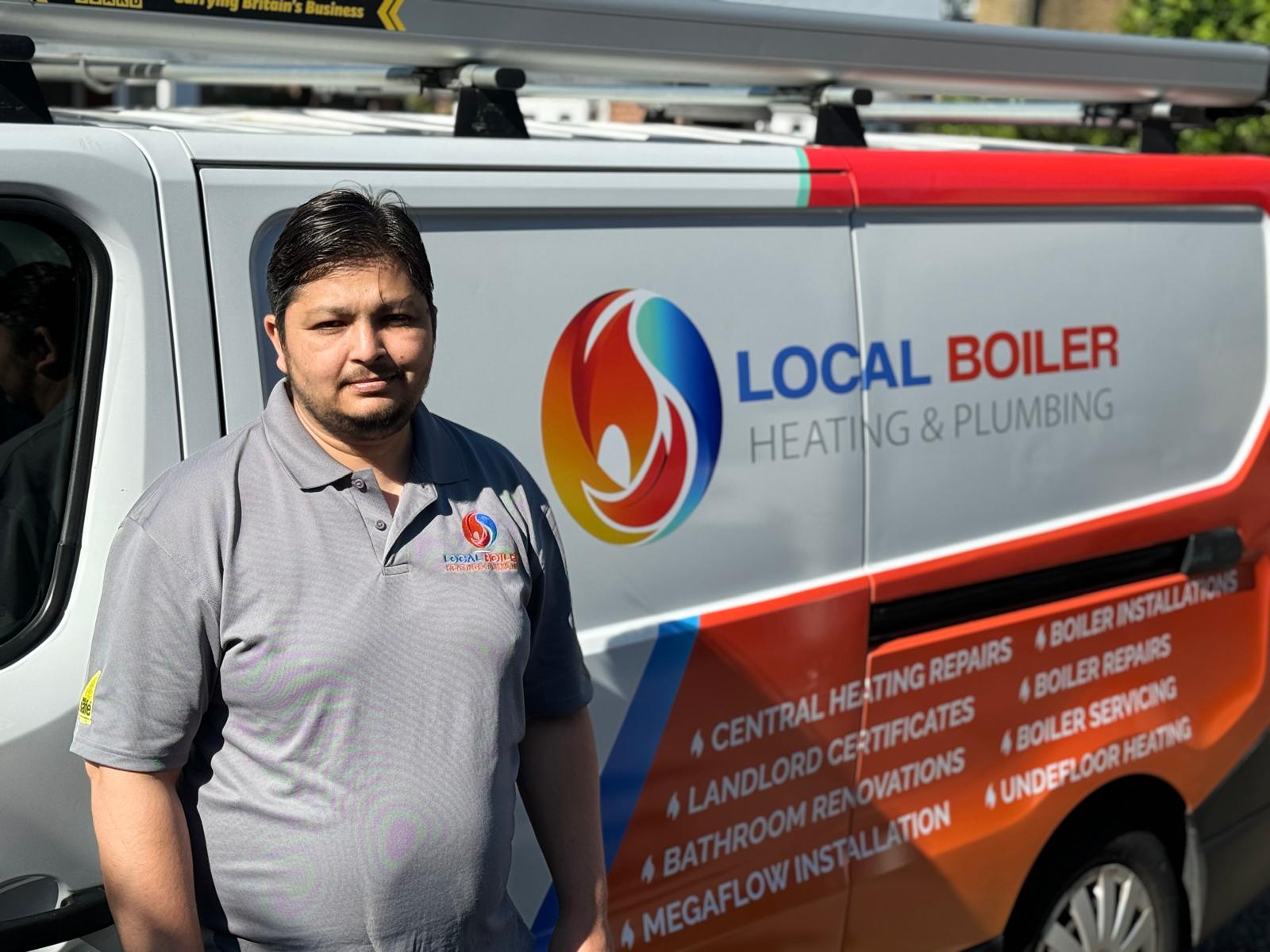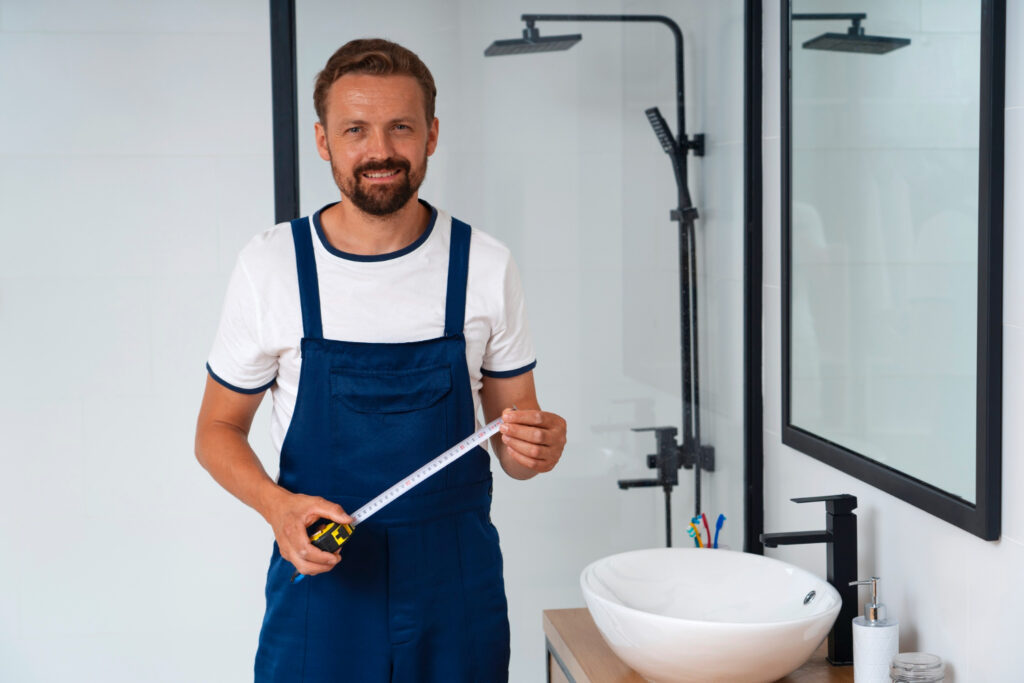Installing a mixer shower with your combi boiler system can transform your daily shower experience whilst maximising the efficiency of your heating setup. This comprehensive guide explores the essential considerations, technical requirements, and practical steps involved in creating the perfect shower installation that works harmoniously with your combination boiler.
Understanding Combi Boilers and Mixer Shower Compatibility
Combination boilers have revolutionised home heating and hot water provision across the UK, offering compact, efficient solutions that eliminate the need for separate hot water cylinders or cold water tanks. When considering a mixer shower installation, understanding how these systems interact becomes crucial for achieving optimal performance.
A combi boiler heats water on demand, providing instantaneous hot water directly from the mains supply. This characteristic makes them particularly well-suited to mixer shower installations, as they can deliver consistent water pressure and temperature when properly configured. However, the success of your installation depends heavily on selecting the right type of mixer shower and ensuring your boiler has sufficient capacity to meet your household’s demands.
The key advantage of pairing a mixer shower with a combi boiler lies in the system’s ability to blend hot water from the boiler with cold water from the mains supply, creating a perfectly balanced temperature whilst maintaining consistent pressure. This combination eliminates the pressure fluctuations often experienced with traditional gravity-fed systems and provides a more enjoyable showering experience.
Types of Mixer Showers Suitable for Combi Boilers
Manual Mixer Showers
Manual mixer showers represent the most straightforward option for combi boiler installations. These units feature simple controls that allow users to adjust temperature and flow rate manually. The direct connection to your combi boiler’s hot water output ensures reliable performance, whilst the manual controls provide precise temperature adjustment.
The installation process for manual mixer showers is relatively straightforward, requiring connections to both hot and cold water supplies. The shower valve mixes these supplies according to your settings, delivering water at your preferred temperature through the showerhead. This simplicity makes manual mixer showers an excellent choice for straightforward installations where budget considerations are important.
Thermostatic Mixer Showers
Thermostatic mixer showers offer enhanced safety and convenience through their built-in temperature regulation mechanisms. These sophisticated units automatically adjust the hot and cold water mix to maintain your selected temperature, even when water pressure or temperature fluctuations occur elsewhere in the system.
The thermostatic element provides crucial safety benefits, particularly in households with children or elderly residents. Should the cold water supply fail, the thermostatic valve automatically shuts off the hot water supply, preventing scalding. Similarly, if the hot water supply is interrupted, the system adjusts accordingly to prevent unexpected cold shocks.
When selecting a thermostatic mixer shower for your combi boiler installation, consider models with anti-limescale features and easy maintenance access. These characteristics ensure long-term reliability and performance, particularly important given the UK’s varying water hardness levels.
Essential Technical Considerations Before Installation
Water Pressure Requirements
Successful mixer shower installation with a combi boiler requires careful consideration of water pressure throughout your system. Most mixer showers require a minimum water pressure of 1 bar to function effectively, though many perform optimally with pressures between 1.5 and 3 bar.
Your combi boiler’s output pressure, combined with your mains water pressure, determines the overall performance of your shower system. Modern combi boilers typically provide adequate pressure for mixer shower installations, but older units or properties with low mains pressure may require additional considerations.
Before proceeding with installation, test your water pressure using a pressure gauge or consult with a qualified heating engineer. This assessment ensures your chosen mixer shower will perform as expected and helps identify any necessary system modifications.
Boiler Capacity and Flow Rate Considerations
The flow rate capability of your combi boiler significantly impacts mixer shower performance. Most combi boilers specify their hot water flow rate in litres per minute, typically ranging from 9 to 18 litres per minute depending on the model and size.
For optimal shower performance, your boiler’s flow rate should exceed your shower’s requirements by a comfortable margin. This headroom accounts for simultaneous hot water usage elsewhere in the property and ensures consistent shower performance. A typical mixer shower requires between 8 and 12 litres per minute for satisfactory operation.
Consider your household’s hot water usage patterns when evaluating boiler capacity. Homes with multiple bathrooms or high simultaneous water usage may require higher-capacity boilers or additional considerations to ensure adequate performance across all outlets.
Pipework and Supply Considerations
The existing pipework in your property plays a crucial role in mixer shower installation success. Both hot and cold water supplies must be properly sized and routed to support your chosen shower system. Standard 15mm copper pipework typically provides adequate supply for most mixer shower installations, though larger properties or long pipe runs may benefit from 22mm supply pipes.
Cold water supply routing requires particular attention, as the mixer shower’s cold water connection must provide comparable pressure to the hot water supply from your combi boiler. Unbalanced pressures can result in temperature fluctuations and reduced performance.
Consider the routing of new pipework carefully, ensuring adequate support and insulation where pipes pass through unheated areas. Proper installation practices prevent future issues with pipe movement, noise, or freeze damage.
Installation Process and Key Steps
Planning and Preparation
Successful mixer shower installation begins with thorough planning and preparation. Start by selecting the optimal location for your shower, considering both practical factors such as existing pipework routes and aesthetic considerations including tiling and bathroom layout.
Mark out the positions for your shower valve, controls, and showerhead, ensuring adequate clearance for operation and maintenance. Consider the height requirements for different users and ensure the installation complies with building regulations regarding minimum distances from electrical installations.
Gather all necessary tools and materials before beginning work, including appropriate pipe fittings, sealants, and mounting hardware. Having everything readily available prevents delays and ensures professional results.
Key Installation Components
- Shower valve and mixing mechanism
- Hot and cold water supply connections
- Temperature and flow control handles
- Showerhead and adjustable riser rail
- Wall mounting brackets and fixings
- Appropriate pipe fittings and isolating valves
Professional Installation Considerations
While competent DIY enthusiasts can tackle mixer shower installations, the complexity of working with pressurised water systems and the potential consequences of errors make professional installation highly advisable. Qualified plumbers possess the expertise to ensure proper installation, compliance with building regulations, and optimal system performance.
Professional installers can also identify potential issues before they become problems, such as inadequate pipe sizing, pressure imbalances, or compatibility concerns between your chosen shower and existing boiler system.
Common Challenges and Solutions
Addressing Pressure Fluctuations
Pressure fluctuations represent one of the most common challenges in mixer shower installations with combi boilers. These fluctuations can result from simultaneous water usage elsewhere in the property, boiler cycling, or supply pressure variations.
Installing a pressure-balancing valve can help mitigate these issues by maintaining consistent pressure ratios between hot and cold supplies. Additionally, ensuring adequate pipe sizing and minimising sharp bends in the supply routes helps maintain steady pressure throughout the system.
Regular maintenance of your combi boiler, including annual servicing and prompt attention to any performance issues, helps maintain consistent water pressure and temperature delivery to your mixer shower.
Temperature Consistency Solutions
Achieving consistent temperature output requires careful attention to both the shower installation and boiler settings. Thermostatic mixer showers provide the most effective solution to temperature consistency challenges, automatically adjusting the hot and cold water mix to maintain your selected temperature.
Proper commissioning of your combi boiler includes setting the appropriate hot water temperature, typically between 50-60°C for optimal shower performance whilst preventing scalding risks. Higher settings can improve mixer shower performance but may increase energy consumption and scalding risks.
Maintenance and Longevity Considerations
Regular maintenance ensures long-term reliability and performance from your mixer shower and combi boiler combination. Establishing a routine maintenance schedule helps prevent minor issues from developing into significant problems.
Essential Maintenance Tasks:
- Monthly testing of thermostatic safety functions
- Quarterly cleaning of showerheads and filters
- Annual professional boiler servicing
- Periodic inspection of visible pipework and connections
- Prompt attention to any changes in performance or unusual noises
Energy Efficiency and Cost Considerations
Modern combi boilers paired with efficient mixer showers can deliver excellent energy performance when properly installed and maintained. The on-demand heating characteristic of combi boilers eliminates standing heat losses associated with stored hot water systems, whilst mixer showers allow precise control over water consumption and temperature.
Consider water-saving showerheads and flow restrictors to maximise efficiency without compromising the showering experience. These components can significantly reduce both water and energy consumption whilst maintaining satisfactory performance.
The initial investment in quality components pays dividends through improved reliability, reduced maintenance costs, and enhanced energy efficiency over the system’s lifetime.
Safety Considerations and Regulatory Compliance
Safety represents a paramount consideration in any mixer shower installation. Proper installation practices, appropriate safety devices, and compliance with relevant building regulations protect both occupants and property.
Key Safety Elements:
- Thermostatic mixing valves to prevent scalding
- Appropriate electrical safety measures and isolation
- Proper ventilation to prevent condensation issues
- Compliance with water regulations and building standards
- Regular safety testing and maintenance procedures
Ensure all electrical work associated with your installation is carried out by qualified electricians, particularly in bathroom environments where special safety considerations apply.
How Local Boiler Supports Your Installation Journey
When considering a mixer shower installation with your combi boiler, expert guidance can make the difference between a successful project and costly complications. Local Boiler understands the complexities involved in integrating shower systems with existing heating installations and provides comprehensive support throughout the process.
Their experienced engineers can assess your current boiler capacity, evaluate water pressure requirements, and recommend the most suitable mixer shower options for your specific situation. This professional guidance ensures your installation delivers optimal performance whilst maintaining energy efficiency and safety standards.
Local Boiler’s commitment to quality extends beyond initial installation advice. Their ongoing support includes maintenance guidance, troubleshooting assistance, and recommendations for system upgrades that can enhance your shower experience whilst improving overall system efficiency.
Future-Proofing Your Installation
Planning for future needs ensures your mixer shower installation continues to meet your requirements as circumstances change. Consider factors such as changing household composition, potential bathroom renovations, and advancing technology when making installation decisions.
Selecting quality components with good manufacturer support ensures long-term availability of spare parts and service support. Additionally, installing isolating valves and accessible connections facilitates future maintenance and potential upgrades without major disruption.
Modern smart shower controls and thermostatic technology continue to evolve, offering enhanced user experiences and improved efficiency. Ensuring your installation can accommodate future upgrades protects your investment whilst providing flexibility for changing requirements.
Conclusion
Successfully fitting a mixer shower with a combi boiler creates an efficient, enjoyable showering system that maximises the benefits of modern heating technology. The key to success lies in careful planning, appropriate component selection, and professional installation practices that ensure safety, efficiency, and long-term reliability.
Understanding the technical requirements, addressing potential challenges proactively, and maintaining the system properly ensures years of satisfactory performance. Whether you choose a manual or thermostatic mixer shower, the combination with a properly sized combi boiler delivers consistent, comfortable showering whilst maintaining energy efficiency.
The investment in quality components and professional installation pays dividends through improved daily comfort, reduced energy consumption, and enhanced property value. With proper planning and execution, your mixer shower and combi boiler combination will provide reliable service for many years to come.
Remember that complex installations benefit from professional expertise, and services like those provided by Local Boiler ensure your project delivers optimal results whilst maintaining safety and compliance standards. Their comprehensive approach to heating system integration helps homeowners achieve the perfect balance of performance, efficiency, and reliability in their shower installations.

Sunny Saini is a certified heating engineer with over 15 years of experience in maintaining and repairing boilers. He specializes in diagnosing complex boiler issues and providing reliable solutions to ensure homeowners stay warm and comfortable throughout the year.





![]=](https://localboiler.co.uk/wp-content/uploads/2024/05/Untitled-design-96-300x300.jpg)